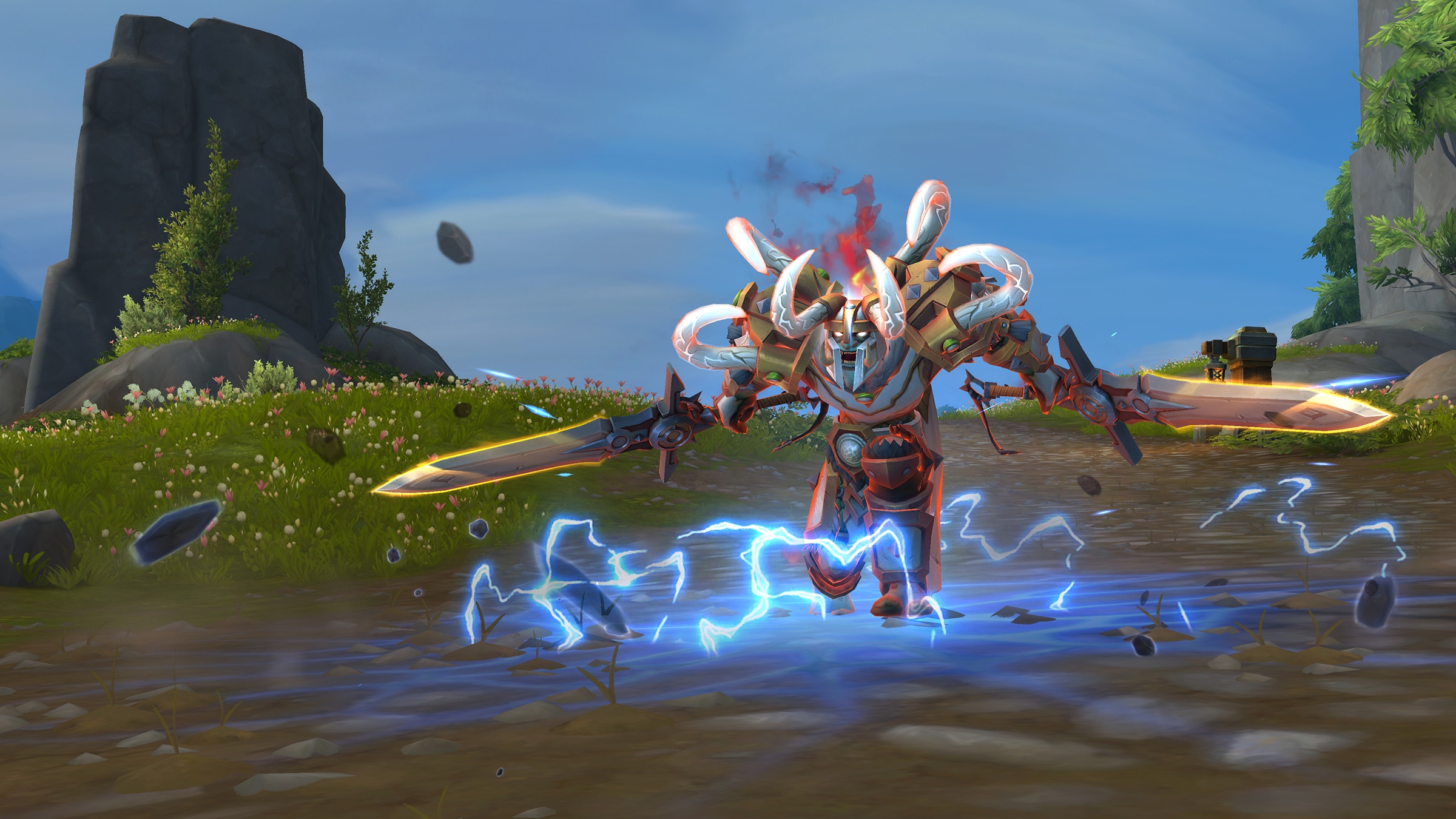(Nice to run into you in-game  )
)
I think it is very interesting to pull from the lore as well with either point of view.
The term “Paladin” in lore comes from Azeroth and is still a relatively new concept not even 100 years old (second war), yet the Draeneis and trolls have had their version of it for thousands of years.
Draenei being the closest one to how humans and dwarfs first started using it.
Strickly speaking they aren’t “paladins”.
Yet all the lore and understanding we have of it stems from Azeroth sources.
Even then from these source, we understand that the first paladins were both priest and warriors.
So it’s not like they can’t wield the light as they used to as priest, this knowledge didn’t evaporate.
And so if under priest it is understood that shadow can also be used, a paladin with a priest background could also be able to use it.
There’s a point to be made that priest doesn’t even necessarily wields the light differently than paladins.
Anduin is understood to be a priest and he “lost” his connection to the light similarly to Arthas, who was a paladin.
The “loss” came because they became conflicted, from their POV, they couldn’t reconcile what they’ve done with their ideals or the oath they swore to uphold.
And so they “lost” the light because they lost their conviction.
For Arthas, he didn’t recognize that conflict and saw it as the light abandoning him, driving him even more toward the power of Frostmourne.
Anduin got heavily depressed but was able to reconcile with himself and find his convictions again and by extension his connection to the light.
It helped that, unlike Arthas, he didn’t have a corrupting force at his belt.
On the contrary, he had a memento of his father keeping him grounded.
Here’s an excerpt from Legion class preview about Discipline specifcally
https://web.archive.org/web/20151114053856/http://eu.battle.net/wow/en/blog/19941176/legion-class-preview-series-priest-09-11-2015
Some priests pride themselves on pragmatism. They understand that light casts a shadow, that darkness is defined by light, and that true discipline stems from one’s ability to balance these opposing powers in services of a greater cause. While these priests possess many holy virtues to aid their allies, they also dabble in the dark arts to debilitate their enemies—always exercising immense discipline to keep themselves away from the brink of insanity. Many would say the ends justify the means; scriptures both virtuous and vile should be studied and understood to protect the congregation.
And another one from wowpedia.
Although this one source has since been changed, it was an older page from WoW website describing the classes.
As light cannot exist without darkness, and darkness without light, some priests tap into shadow to better understand their own abilities, as well as the abilities of those who threaten them.
If these are more profound insights, then we can assume they might be true regardless of the source of light and regardless of how we argue it is wielded.
Those are more than just two opposing forces, they complement and balance each other, one cannot exist without the presence of the other.
As we can see the lore and information we can find seems to be conflicted and contradict each other sometime, which brings us to the realisation that these power are not well understood and could evolve.
We may put that on the back of writing mistake but in the end doesn’t that make it all the more real?
How would any mortal being pretend to know the fine inner workings of these powers? We barely understand our own universe, imagine one with literal magic in it.
Finally, I’d say that while the class name is “paladin”, there’s a point to be made that it is only so because of the iconography and ideas it evocates rather than a 1 for 1 adaptation of what they were initially introduced as.
Overtime it evolved to become more of an umbrella term, whether we like it or not.
Drainei aren’t bound by that term, neither are trolls or Taurens and they aren’t called paladins in their language, we keep the term because it is socially evocative outside of the game boundaries, not because it is a precise representation of what we have in game.
And so, under this light (pun intended), there’s wiggle room for such themes to be explored.
